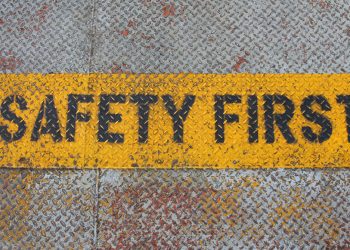As part of their Good Catch series, American P&I has published an alert to inform interested parties about a recent incident involving heat exhaustion on an inland towing vessel.
The crew of an inland towing vessel was making up a large tow to head up the Mississippi River. They were at a barge fleeting area just upriver from Baton Rouge, Louisiana. The forecast was for a clear and hot August day. Despite the crew’s early start, the temperature at 8:30 had already risen to 82oF (28oC) with normal Louisiana humidity – somewhere around 90-95%.
The deckhands had started before dawn, working hard in conjunction with a small fleet boat to secure the barges. That involved carrying wires and ratchets from the towing vessel to the barges, securing wires between the barges, and tightening them. They were hurrying to complete their tasks so the towing vessel could get underway and they could retreat to the air conditioning and breakfast.
By 9:30, their work was almost complete. The sun was radiating off the steel barges and the air temperature had increased to 86oF (30oC). Suddenly, one of the deckhands passed out and collapsed. The lead deckhand saw it happen and yelled to the pilothouse. The Master notified the rest of the crew about the medical emergency and used his cell phone to call for an ambulance. While waiting for the ambulance, the crew carried the deckhand into the air conditioning where they loosened his clothing and applied cool cloths to his face and neck. The deckhand was admitted to a nearby hospital where he was treated for a fall, heat exhaustion, and dehydration. He remained in the hospital for one day and felt the aftereffects of fatigue, dizziness, and nausea before making a full recovery three days later.
Actual Damage
The deckhand’s injuries from heat exhaustion and dehydration were minor. The bumps and bruises from passing out on the deck of a barge were also minor.
Potential Damages
Heat exhaustion can quickly lead to heat stroke which can cause permanent damage to the brain and other vital organs and can cause death. Additionally,
the deckhand was fortunate that he did not fall overboard or between two barges when he passed out.
- Heat exhaustion symptoms can include heavy sweating, faintness, dizziness, fatigue, a weak and rapid pulse, muscle cramps, nausea, headache, severe thirst, and tingling of hands and feet.
- Heat stroke symptoms can include hot and dry skin, dizziness, a fast and strong pulse, nausea, headache, confusion, passing out, seizures
- Risk factors include obesity and certain prescription drugs
- In the event of heat exhaustion:
- Move to a cool place
- Loosen clothes
- Apply cool, wet cloths
- Sip water
- Get medical help immediately if throwing up, symptoms worsen, or symptoms last more than one hour
- In the event of heat stroke:
- Treat it as a serious medical emergency
- Move the person to a cool place
- Apply cool, wet cloths, or a cool bath
- Do not give the person anything to drink
Prevention
- Wear loose, lightweight clothing and a hat with a wide brim if possible.
- Protect against sunburn which reduces the body’s ability to cool itself.
- Drink plenty of water. Hydrate!
- Don’t wait until you are thirsty.
- Avoid sugary drinks and highly caffeinated drinks.
- Replace salts and minerals with light, balanced meals and sports drinks that contain salt, electrolytes, and small amounts of sugar.
- Avoid heavy meals. Include light and hydrating foods such as cucumbers, berries, celery, yogurt, and salads.
- Avoid very cold drinks.
- Take periodic breaks in the shade or the air conditioning.
- Educate everyone about the signs of heat stress, especially supervisors.

































































